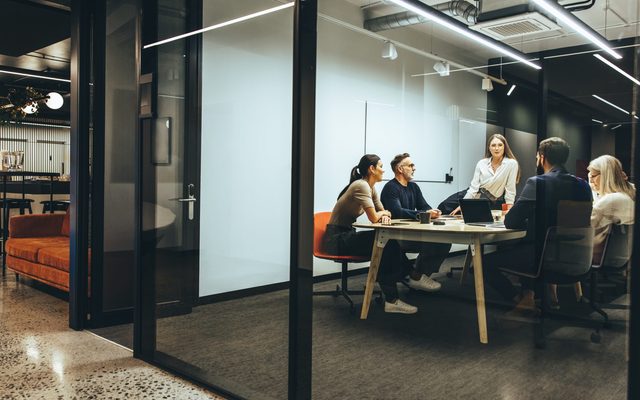This article is from the Australian Property Journal archive
80% of workers in corporate Australia will never return to full-time work in an office, leaving the future of workplaces permanently changed by the COVID-19 pandemic.
According to a new research report, Liberated Work, by flexible workplace provider Hub Australia and global independent researchers WORKTECH Academy, Australians are willing to sacrifice other benefits in favour of flexibility at work.
“Our research shows there are three major reasons why employees still want to visit an office: collaboration with colleagues, access to technology and improved productivity,” said Jeremy Myerson, director of WORKTECH Academy.
The report, which surveyed 500 employees of the country’s largest firms, found 57% of workers would go without a pay increase or promotion to ensure future flexibility in work locates and 53% would go as far as taking a wage sacrifice to have more flexible work hours.
“So while commercial landlords fear office leasing demand will shrink in the face of hybrid work, they can be assured there’s still an important role for the office to play and hybrid work is only the beginning of the what has been dubbed ‘the future of work’,” said Myerson.
While only 14% of those surveyed had returned to a full five days at the office, the report found that 66% of workers had returned part time and 19% had not returned at all.
Only 21% of those surveyed saw themselves returning to the traditional full-time office workplace, with 58% expecting to be working over multiple location in 10 years’ time. This included traditional offices, coworking spaces, home and other locations.
The report also revealed that 19% of workers believe that the traditional office will become obsolete within the next 10 years, while 21% are unsure if the current hybrid trends will last at all.
“The time is now for landlords to plan for how workforces will use and access space, not just in this current COVID environment but also a decade down the road – where creating diverse environments to meet the demands for ‘liberated work’ will be essential,” added Myerson.
While all signs point to flexible working being the future, the survey found only 9% of workers’ companies had introduced a policy addressing hybrid work conditions.
Though of those companies that had implemented policies, 33% included flexible work hours, 32% outlined minimum days in the office each week or month and 28% included a booking system for days spent in the office.
“Work has been permanently unshackled from physical spaces since the pandemic and leaders now must consider policies that allow employees to be the judge of how, when and where they work best,” said Brad Krauskopf, CEO and founder of Hub Australia.
Krauskopf went on to describe what a future “liberated work eco-system” that includes the traditional office could look like, with a workforce occupying a virtual and digital environment.
“We’re seeing the rise of space-as-a-service, including coworking, hub-and-spoke arrangements and suburban work hubs, in addition to remote and work-from home models. It’s why we’ve seen corporate enquiry for Hub Australia sites spike by 60% since the beginning of 2021,” said Krauskopf.
This shift is highlighted in the survey’s findings on perceived benefits for workers from new styles of working, with 55% replying that hybrid working has aided better work-life balance and 38% finding they were more productive in a flexible setting.
At the same time, 23% of employees found they never felt connected to the workplace when working virtually.
With 52% citing a need for collaboration as a reason to return to the office, 46% naming access to technology and amenities and 46% citing productivity.
“We believe the new in-demand employee benefit will be offering employees choice of company workspace. Providing workspaces that are hospitality-centric, offer advanced future-proofed technology while supporting health and wellness are essential to meeting demands of the modern worker,” concluded Krauskopf.




